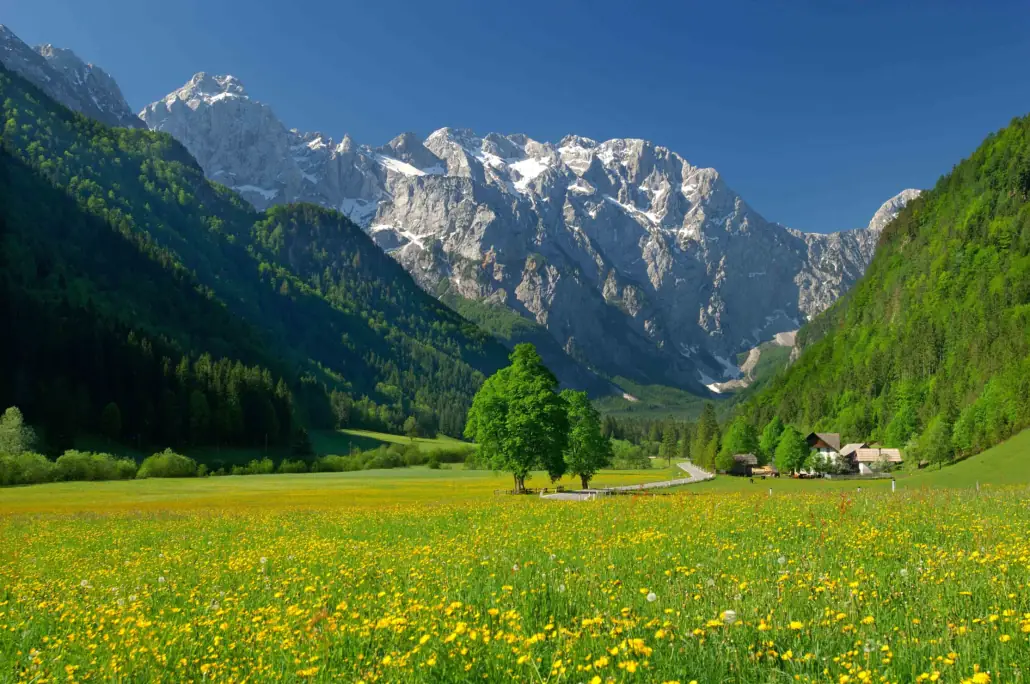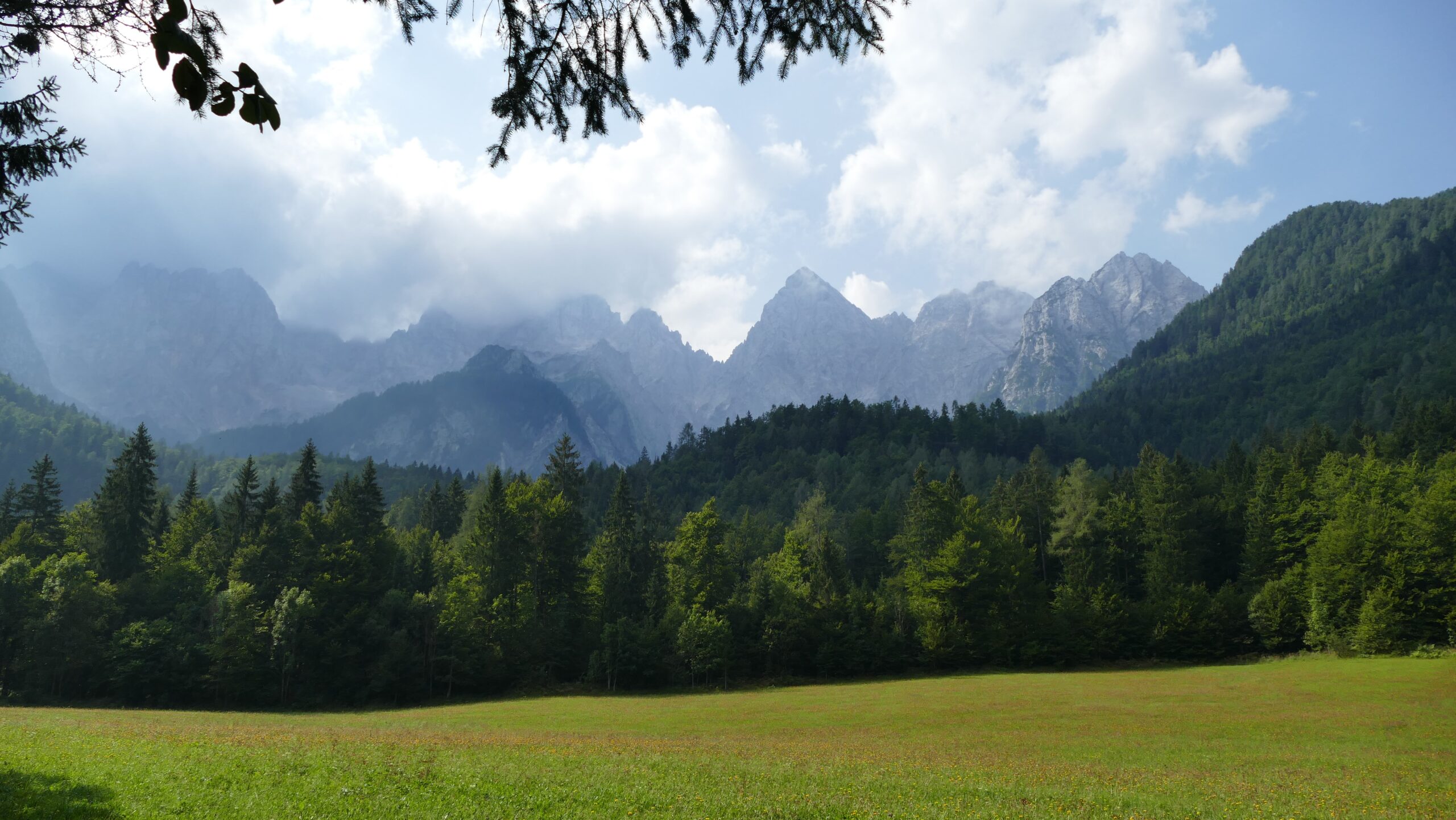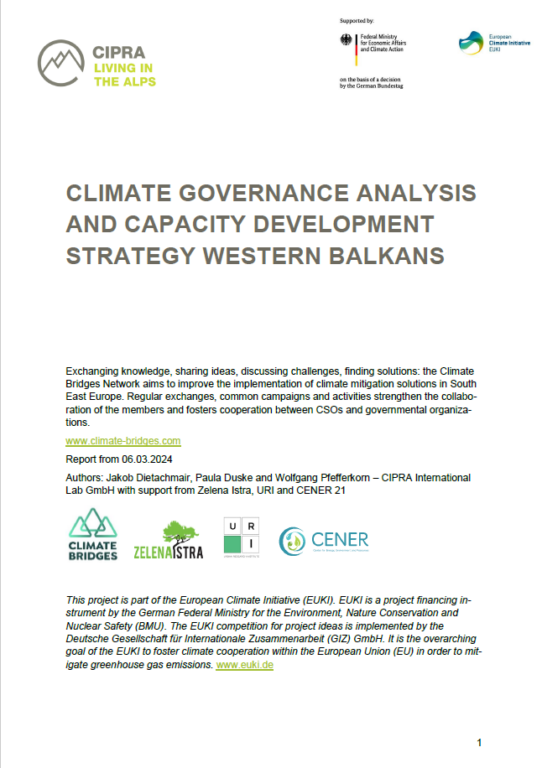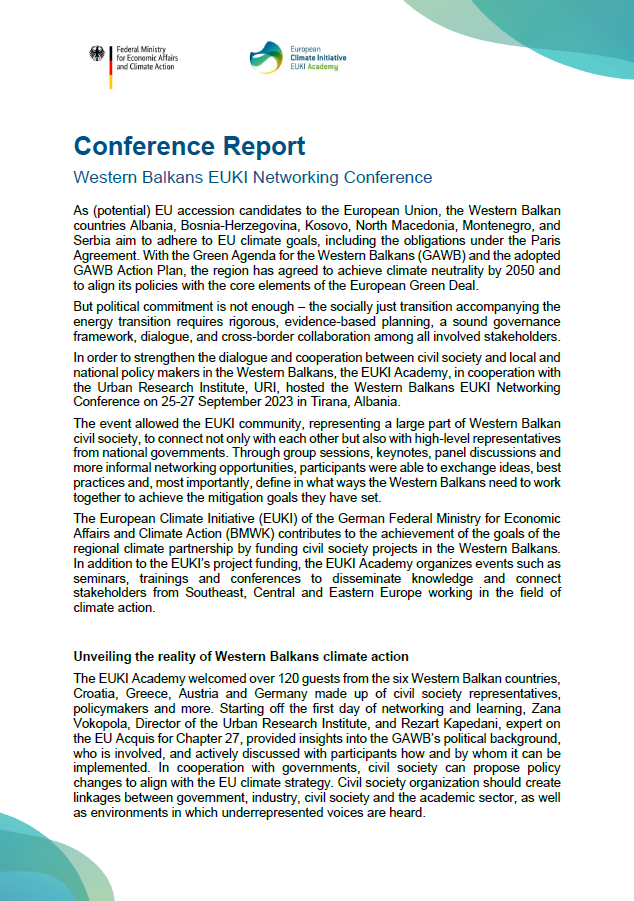Climate Bridges
Forming a climate action network in the Western Balkan to advance transnational climate policy in the region.
Climate Policy Climate Strategies and Plans

Project info
Albania, Austria, Bosnia and Herzegovina, Croatia, France, Germany, Italy, Kosovo, Montenegro, North Macedonia, Serbia, Slovenia
09/21 - 02/24
Non-governmental organisations, Civil society, Local governments, Regional governments, National governments
565,985.00 €
Contact info
Jakob Dietachmair
- Association Green Istria
- CENER 21 – Center for Energy, Environment and Resources
- Urban Research Institute
Background
In November 2020, leaders from the Western Balkan countries signed the Green Agenda for the Western Balkans. It aligns with the EU Green Deal and offers guidelines on how to foster climate action in the region. Effective climate policy does not stop at boarders and requires a trans-national approach. Lots of civil society organisations in the region already work in the climate protection field. What is so far missing, is a network to connect these actors. While various climate action networks already exist on the European level, there is no civil-society-driven network yet in the Western Balkan.

Project
The team of Climate Bridges strengthens climate action in the Western Balkans by establishing a climate network of civil society organisations and (semi-) governmental bodies. This makes use of the advantage that civil society organisations are more flexible when connecting on trans-national level.
The climate network platform fosters exchange, discussion and collaboration on trans-national level to mitigate climate change in the region. Experiences gained from similar processes in the Alps, like the Alpine Partnership for Local Climate Action or the Alpine Climate Board support these activities.
To display the status quo in the region, the project team collects 30 good practice examples of climate action and awards the best ones with a climate price. Additionally, three climate mitigation strategies will be elaborated with pilot regions in Albania, Bosnia-Herzegovina, and Croatia. Representatives from the Alpine region support the elaboration of the strategies and thus empower and motivate participants from the Western Balkan countries to replicate successful approaches.
Last update: July 2024


